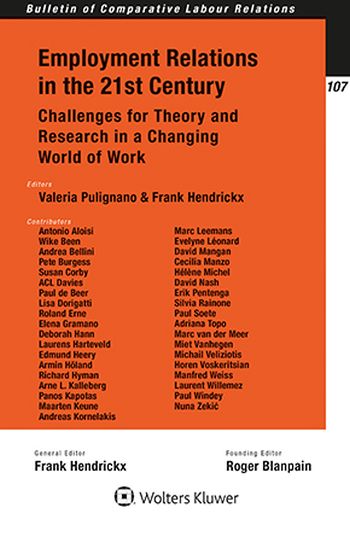
Employment Relations in the 21st Century
provides a full and integrated insight into labour law and industrial relations. It cannot be denied that in recent decades, for many, if not most people, work has become unstable and insecure, with serious risk and few benefits for workers. As this reality spills over into political and social life, it is crucial to interrogate the transformations affecting employment relations, shape research agendas, and influence the policies of national and international institutions. This implies to focus on transnational regulatory structures and new forms of social protection and representation for different typologies and forms of work as a way to avoid increasing inequalities across (and within) countries. This volume brings together thirty-nine scholars (both academics and experienced industrial relations actors) in the fields of employment relations and labour law in a forthright discussion of new approaches, theories, and methods aimed at ameliorating the world of work.What’s in this book:
Focusing on why and how work is changing, how collective actors deal with it, and the future of work from different disciplinary angles and at an international level, the contributors describe and analyse such issues and topics as the following:
How this will help you:
With its wide range of insights, analysis, and reflection, this unique contribution to the study of industrial relations offers an authoritative reference guide to scholars, policymakers, trade unions and business associations, human resources professionals, and practitioners who need to deal with the future of work challenges. Providing up-to-date information and analysis of the most recent key developments in labour law and industrial relations, this book is a unique volume and a fruitful contribution to the interdisciplinary study of industrial relations from the fields of social sciences and law.